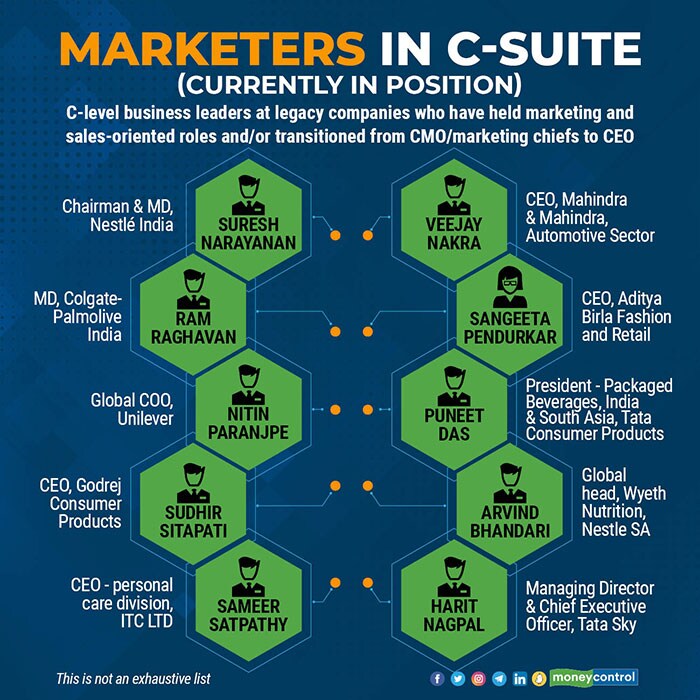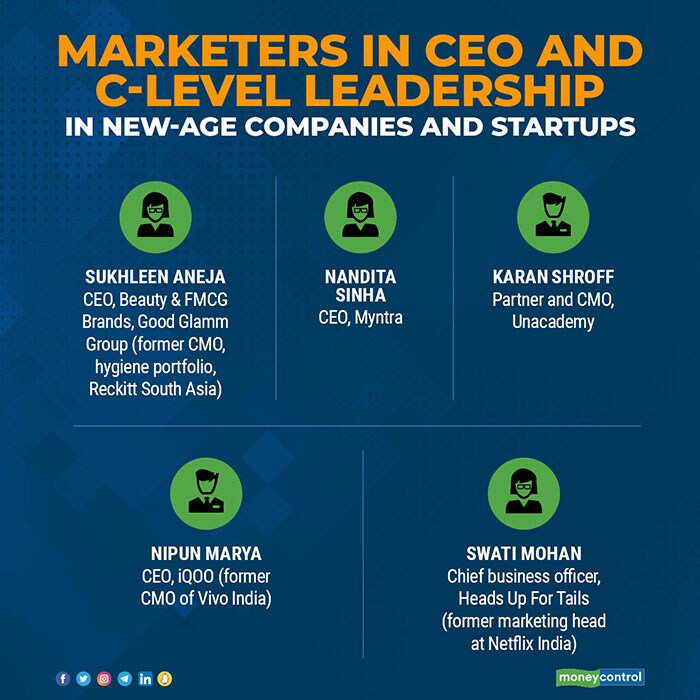
Storyboard18 - CMO to CEO: Why new-age companies are betting big on marketers to lead them
Borrowing from the leadership playbook of legacy companies, the trend of people with different backgrounds, including sales/marketing, taking over leading business roles at new-age companies and startups is increasingly becoming pronounced in the country
 Experts believe that the trend of people with different backgrounds, including sales/marketing taking over leading business roles at the company is increasingly becoming pronounced in the country; Image: Shutterstock
Experts believe that the trend of people with different backgrounds, including sales/marketing taking over leading business roles at the company is increasingly becoming pronounced in the country; Image: Shutterstock
The Good Glamm Group, a beauty and personal care unicorn with an estimated $1.2 billion valuation, Friday announced the appointment of Sukhleen Aneja as the CEO to head the brands business. She brings with her nearly two decades of FMCG and beauty experience, and in her last role, she was the chief marketing officer (CMO) for Reckitt’s hygiene portfolio across South Asia.
Aneja joins a bandwagon of career marketers increasingly making a bold and confident transition to lead organisations as CEOs and in key business roles. While legacy companies have a fair number of C-level marketing leaders, new-age companies and startups are catching up now, taking bets on people who come from marketing and sales backgrounds.
Apart from Aneja, some of the other C-level marketing/sales-born leaders in the startup ecosystem include Flipkart’s Nandita Sinha who recently took over as Myntra CEO; Unacademy elevated its CMO Karan Shroff as a partner; and Nipun Marya who took over iQOO, an online sub-brand of Vivo as CEO. Marya was serving as Vivo’s director, brand strategy. Former Netflix marketing head Swati Mohan joined pet care startup Heads Up For Tails as a chief business officer.
Experts believe that the trend of people with different backgrounds, including sales/marketing taking over leading business roles at the company is increasingly becoming pronounced in the country.









